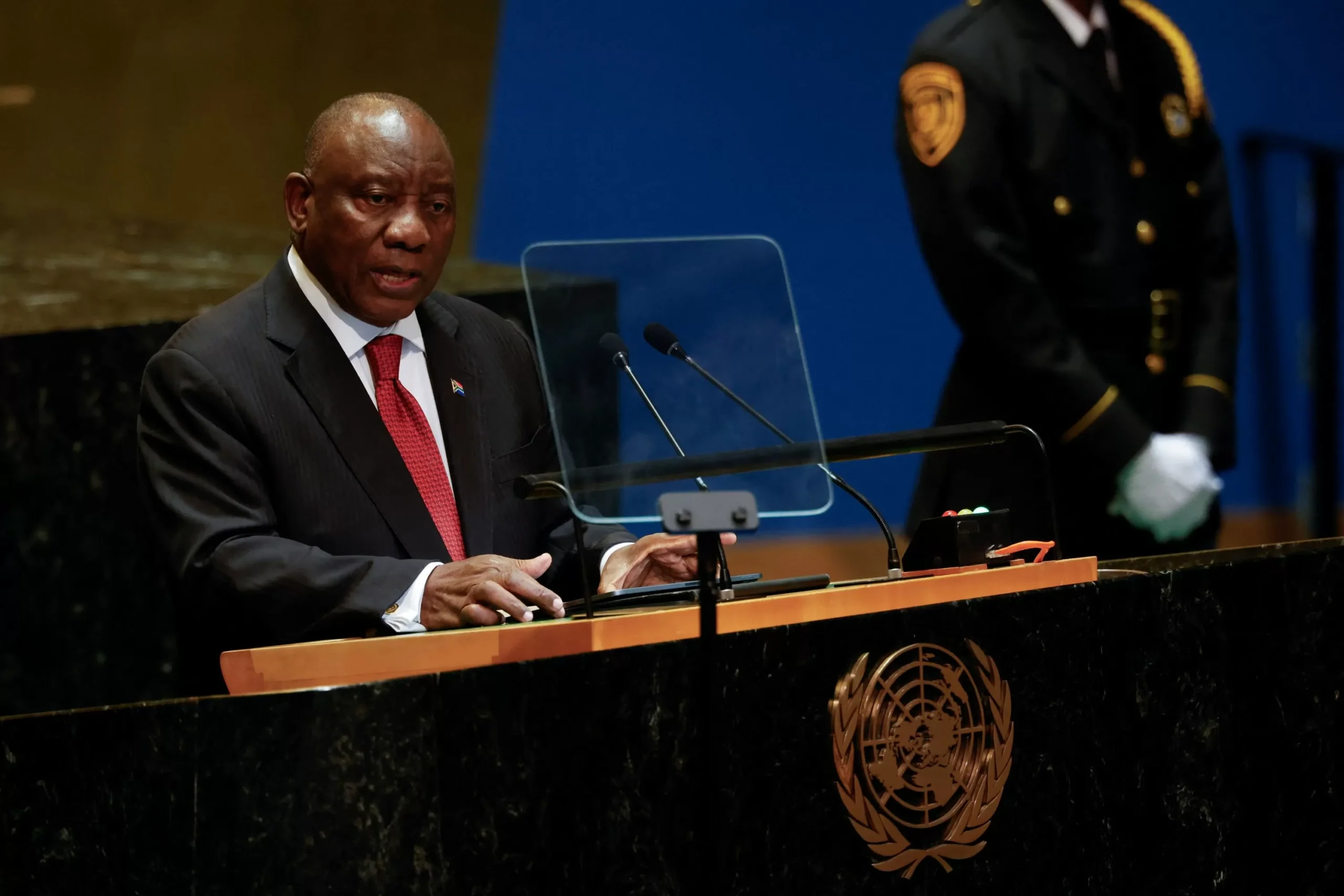In a bold and resolute decision, South African President Cyril Ramaphosa has announced that the country is seriously considering cutting diplomatic ties with Israel in a show of unwavering support for the Palestinian cause. This move demonstrates South Africa’s deep commitment to justice and equality for the Palestinian people and stands as a clear message to the international community that the nation will not turn a blind eye to the ongoing plight of the Palestinians.
President Ramaphosa’s announcement came during a virtual meeting with Palestinian President Mahmoud Abbas and other Palestinian officials. The meeting was held to discuss the alarming situation in Palestine, particularly the ongoing human rights violations by the Israeli government. President Ramaphosa expressed his deep concern for the escalating violence and oppression faced by the Palestinian people and affirmed South Africa’s unwavering solidarity with their struggle for freedom and self-determination.
The decision to potentially sever diplomatic ties with Israel is not a hasty one. It is a result of many years of consultations and deliberations with the Palestinian people and their representatives. South Africa is no stranger to oppression and injustice, having endured decades of brutal apartheid rule. This shared history has created a strong bond between the two nations, with South Africa being one of the first countries to recognize the Palestinian Liberation Organization (PLO) in the 1970s and offer its support to the Palestinian cause.
However, South Africa’s stance on the Palestinian issue has not always been met with widespread approval. The nation has faced immense pressure from powerful nations to maintain its relations with Israel and refrain from taking any action that may be deemed as “anti-Israel.” But President Ramaphosa’s announcement sends a resounding message that South Africa will not succumb to any form of bullying or coercion.
The decision to potentially cut ties with Israel is a significant step in the right direction. It is a clear statement that South Africa stands on the side of justice and human rights, and will not tolerate any form of oppression, whether it be in its own country or in any other part of the world. It is a reflection of the country’s commitment to upholding international law and promoting peace and stability in the region.
Furthermore, this move serves as a wake-up call to other nations that have yet to take a strong stance on the Palestinian issue. It sets a precedent for countries to prioritize human rights over political and economic interests and stand in solidarity with the oppressed. As President Ramaphosa stated, “We cannot remain silent when human rights are being violated, and justice is being denied.”
South Africa’s potential cutting of diplomatic ties with Israel has sparked an international response, with many congratulating the nation for its courageous stance. Palestinian President Mahmoud Abbas expressed his profound gratitude to South Africa for its unwavering support and solidarity. He also urged other nations to follow in South Africa’s footsteps and hold Israel accountable for its continuous violations of international law.
The Palestinian cause is not just a political issue, but a human rights issue that requires urgent attention and action. By considering cutting ties with Israel, South Africa is taking a decisive step towards addressing this long-standing injustice and standing up for what is right. It is a move that reflects the nation’s strong moral principles and commitment to the values of justice, equality, and peace.
In conclusion, President Ramaphosa’s announcement that South Africa is actively considering cutting diplomatic ties with Israel is a historic and commendable decision. It shows that the nation is at the forefront of the fight against oppression and injustice, not just within its own borders, but on a global scale. South Africa’s move serves as a beacon of hope for the Palestinian people and all those who continue to struggle against oppression and discrimination. Let us hope that other nations will follow in South Africa’s footsteps and take a stand for justice and human rights.






![Complete BritRail Pass Guide [Types, How to Use It, Pros + Cons]](https://inside-news.uk/wp-content/uploads/2025/06/00221EB4-BCA2-4DBB-6CD4-83DBC37D71FA-120x86.webp)














